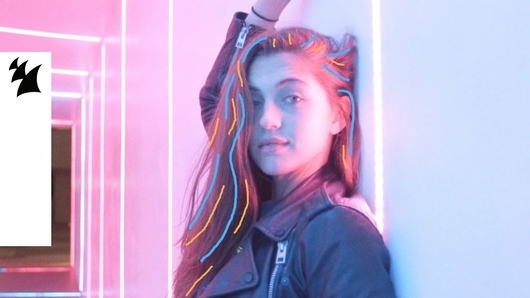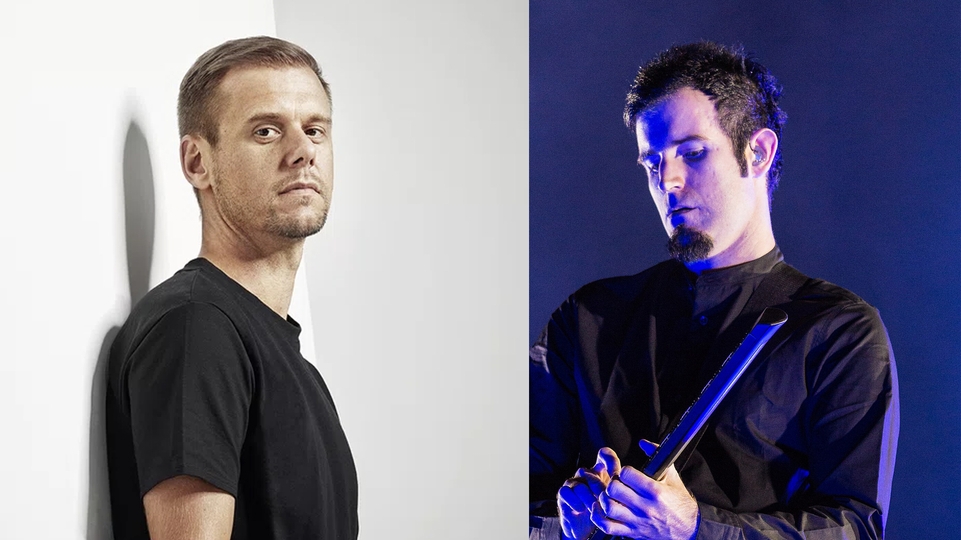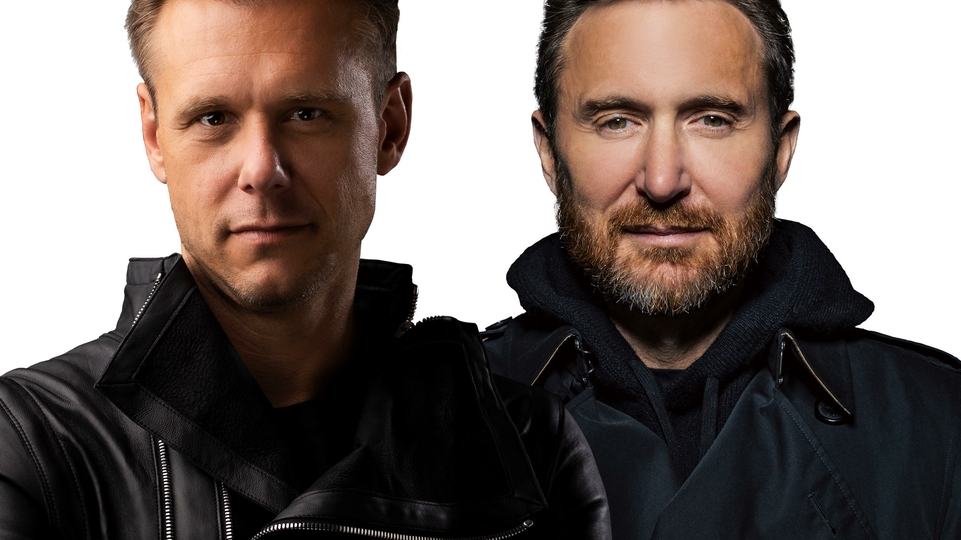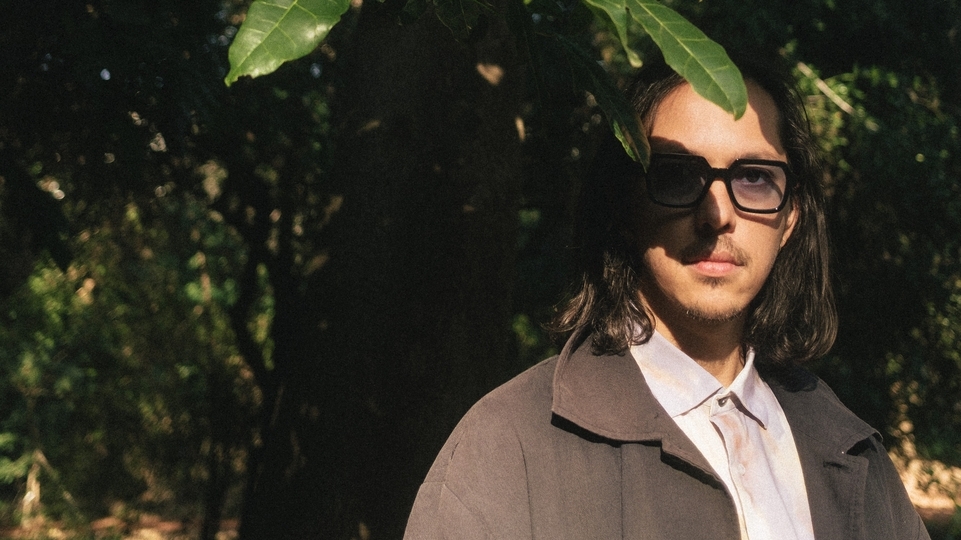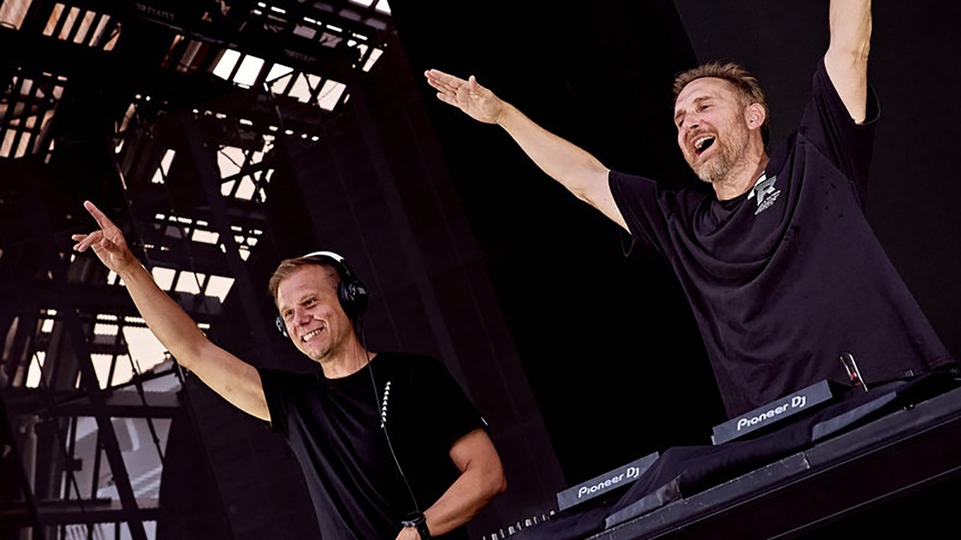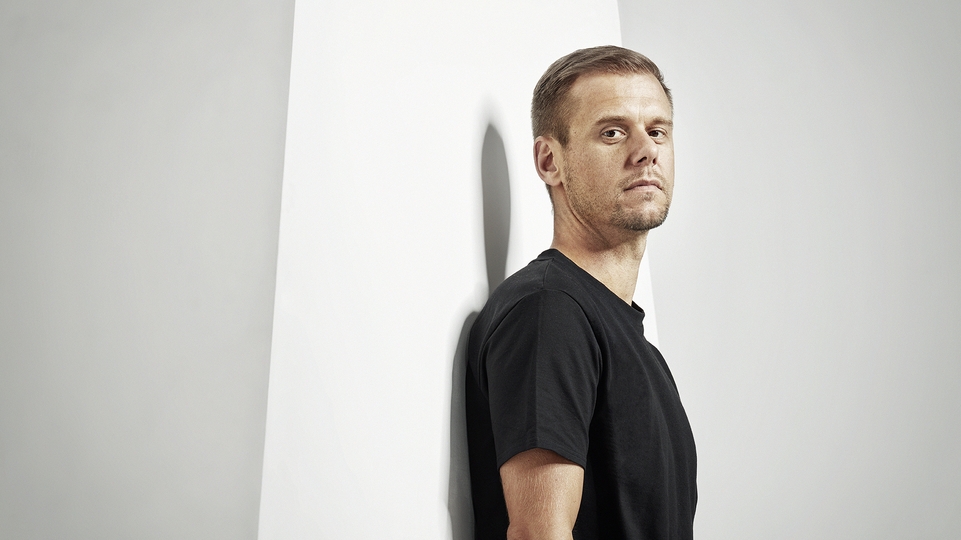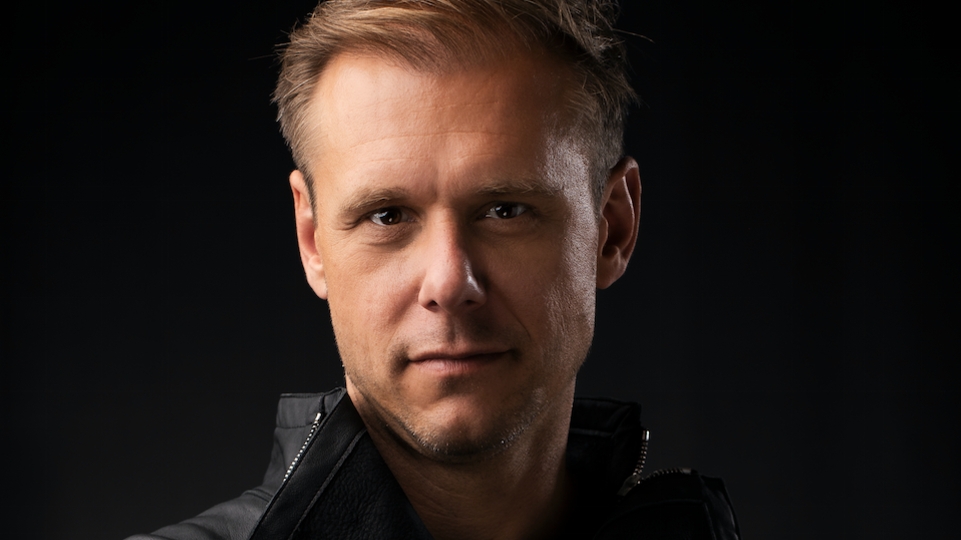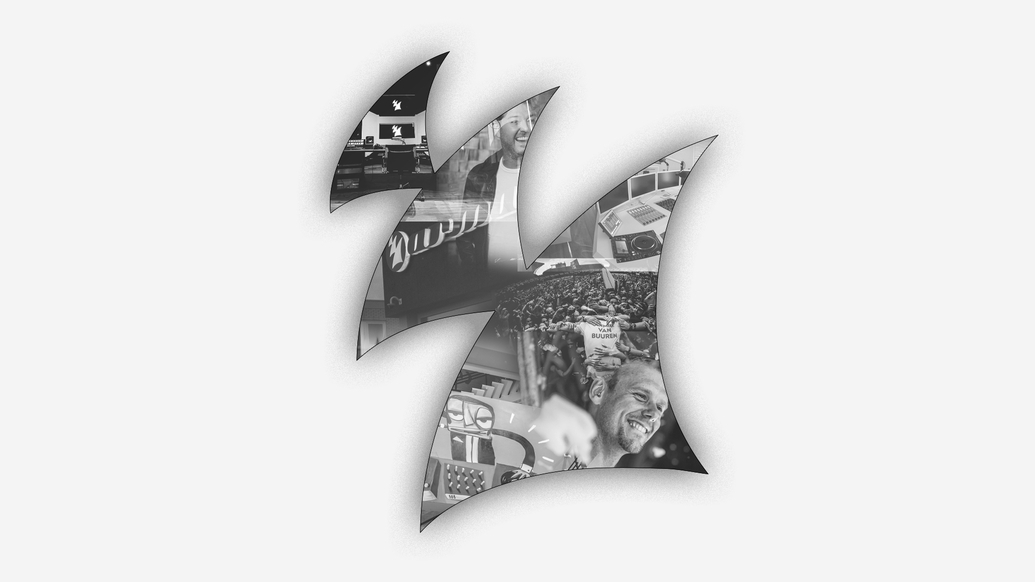
Sailing into the Future: 20 Years of Armada Music
With offices across the globe and genre-defining hits coming out of its ears, Armada Music has evolved to become the biggest independent dance label in the world. As the Dutch imprint celebrates 20 years of existence, DJ Mag’s Olivia Stock meets up with co-founders Armin van Buuren and Maykel Piron during ADE and visits the Armada offices to discover the secrets to the success of this slick electronic music operation
“Armada has given me the opportunity to just be me,” grins a lightly damp Armin van Buuren. “I think we’re proud we’re Dutch, but we’re not a Dutch label per se.” Armin and a few key members of his cohort are in the back of a car speeding across Amsterdam’s canal belt, rain pummelling hard against the windows. Less than five minutes ago, the Dutch DJ and producer was on stage for an ADE panel on the 20-year history of his label, Armada Music, alongside co-founder Maykel Piron and Nadine van Bodegraven, COO of the label’s newest venture, BEAT Music Fund. In another 20 minutes, he’ll be DJing live on the airwaves of Amsterdam’s SLAM! Radio. It’s an appropriate mise en scène for DJ Mag to catch up with the Dutchman, who is almost perpetually on the go.
Despite his crowded schedule, van Buuren always finds time to be sentimental — especially considering this year’s milestone occasion. “I would have never thought that I’d be sitting here in a car in Amsterdam in 2023 talking to you about 20 years of Armada,” he smiles. “Those two decades flew by. We started Armada just to put records we love out there, and never could have never imagined that all this was to come.”
The story of Armada begins in Ibiza, dance music’s spiritual home, in the summer of 2003. At the time, van Buuren was signed to US house label United Records, alongside hosting his newly hatched A State Of Trance (ASOT) radio show. However, despite being given his own United offshoot, the trance heavyweight was struggling to get any of the new music he’d discovered approved for release. He recalls a particular track called ‘Mushroom Therapy’ by Dutch DJ and producer, Mark Otten. “I remember it was the Lightscape remix, and I used it to open my Essential Mix on BBC Radio One in 2003. The fans went absolutely crazy for it, so I presented [United] with the song and they didn’t like it. I said, ‘But this is beautiful music, people need to hear this!’”
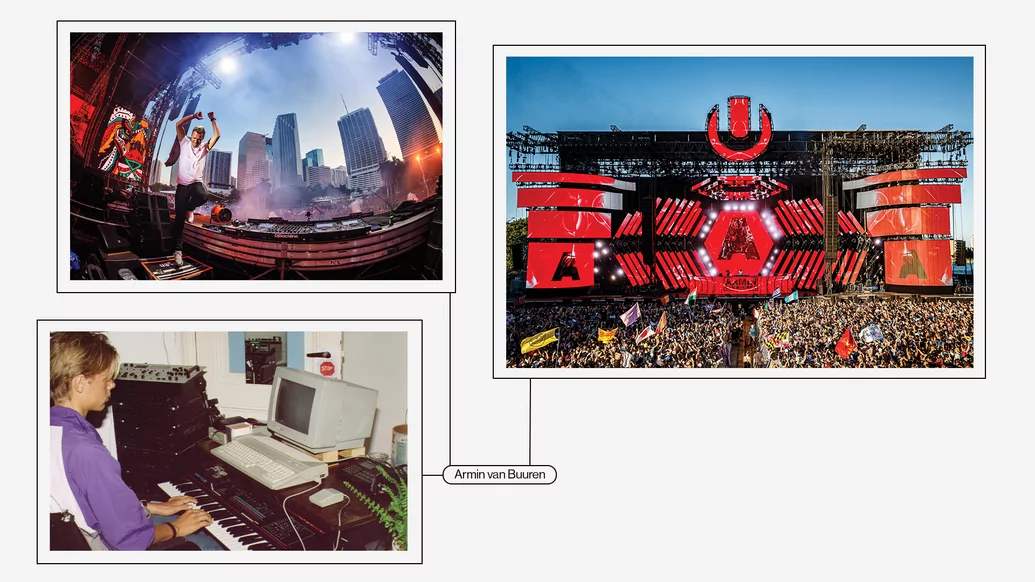
“The label was essentially a shell just to release the Armin van Buuren songs,” he continues. “So I ended up just stuck with a whole pile of CD-Rs of unsigned music. It was this big...” He gesticulates wildly with his hands. Frustrated, the artist called up Maykel Piron, an A&R at Dutch trance imprint Purple Eye whom he’d sparked up a friendship with a few years prior, to hatch a plan. “I told Maykel, ‘Help! We need to start our own label’. It was just a necessity at that point. I didn’t care if I didn’t make any money with it — we started Armada just to put records we love out there.” Along with van Buuren’s manager David Lewis, they launched Armada (an acronym of their names – ARmin, MAykel and DAvid) with Questia’s trance groover, ‘Nexus Asia’, later that year.
Headquartered in Amsterdam with offices in New York and London, the label now manages an ever-growing catalogue of over 40,000 tracks, built up across the intervening 20 years of electronic music exploration. To mark the occasion, the global Armada team have descended on the Dutch capital en masse for a celebratory lap at 2023’s Amsterdam Dance Event (ADE), featuring a busy programme of panels, labs, and masterclasses. The celebrations kicked off on Thursday night with an Armada Electronic Elements party at canalside nightspot, Lagerwal. With sets from Yotto, Yulia Niko, Maxim Lany, Enamour, Lufthaus, and special guest and recent signee, Miss Monique, it’s a glorious celebration of the iconic, progressive-focused sub-label.
The Armada team are in ample attendance on the night, two-stepping gaily to the fruits of their labour. Amongst them is CEO and co-founder Maykel Piron, who, when he isn’t overseeing the label’s cross-continental empire, can regularly be found front and centre on the dancefloor. DJ Mag catches up with him the following day for coffee in one of the many brightly-coloured meeting rooms at Armada’s Dutch headquarters to reflect on two decades at the forefront of independent dance music. “I’d always dreamed of owning my own dance music-focused label,” he grins. “I was nine years old when a friend of mine played me a mix for the first time — it was like nothing I’d ever heard before.”
Having quickly outgrown the label’s first office in The Hague, Piron had found a promising new space in Amsterdam, where he was living at the time. “We were only leasing about 100 square metres in the beginning, but as we were growing it was like, ‘OK, crap. We need some more metres... and even more metres’, until now we basically have the whole building,” he laughs. “And if you have the whole building, it’s easier to start making it a little bit more your own.” And make it their own they have. Tucked away in the industrial hinterlands of Amsterdam-Zuid, the Armada office is a bona fide creative utopia designed to galvanise creativity and nurture collaboration between team members.
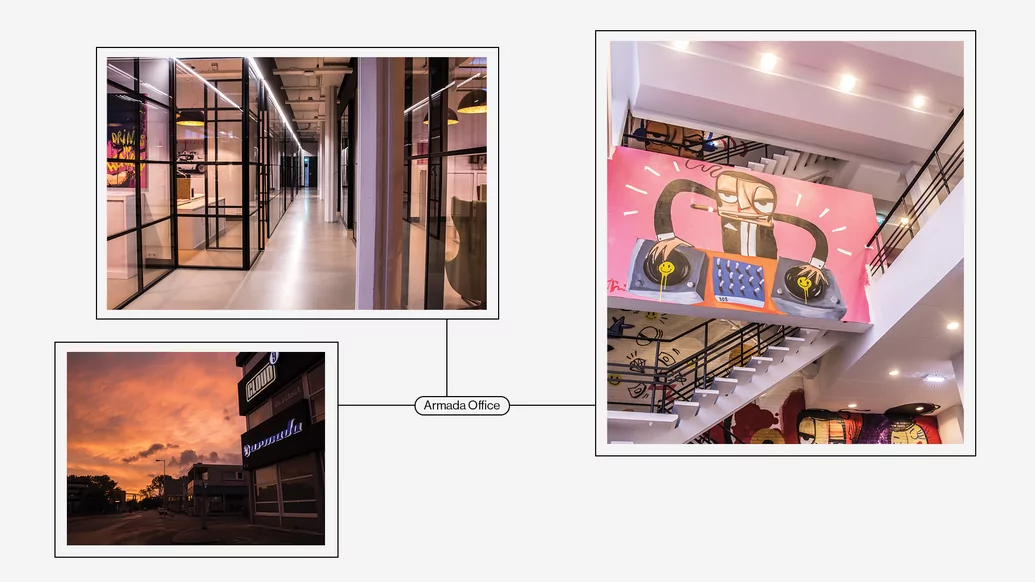
“We don’t believe in just signing your biggest track and then saying ‘off you go’, we believe in real, personalised artist building. That’s when the magic really starts to happen.” – Armin Van Buuren
The first floor houses a radio studio, from which van Buuren hosts his weekly award-winning show, A State Of Trance. Next to the studio is an in-office nightclub, where artists can road-test new music on a cutting-edge sound system, and fans can catch exclusive, intimate sets from Armada’s heavyweight roster. On ADE Friday, the likes of Marco Lys, Gigee, Eelke Kleijn and Joris Voorn B2B Yotto take over the HQ booth for a pop-up party in collaboration with Voorn’s new event series, Spectrum. Entering through a red velvet curtain, we find ourselves in a small but perfectly formed club, deep house tumbling from the speakers and revellers dancing as if their favourite DJs didn’t sign their contracts in a conference room down the hall.
In appropriately Amsterdam fashion, bikes emblazoned with Armada’s crest lean against all available surfaces, and vibrant, hand-painted murals spiral up the walls of the office’s central staircase. We later learn that the works — which are peppered throughout the building — come from the brush of Selwyn Senatori, a popular post-modern artist and close friend of Piron. “I think it’s important, even if you don’t like art, to be in an environment that will put a smile on your face,” Piron explains, “and even small things can create that feeling.” He pauses to draw the room’s attention to a paint-splattered Mickey Mouse canvas mounted on the wall behind his desk: “Try not to feel at least a little bit better after looking at that.”
From his desk, Piron can see out across the office and into the adjoining rooms thanks to vast, glass dividers. It fosters an environment of organic trust and openness, and makes grabbing a colleague or artist for a chat as simple as raising a wave. For anyone who wants to mix, CDJs are never more than a couple of steps away, and for anyone needing a reminder of the label’s myriad successes, the walls are slathered with industry awards, gold and platinum records, and grinning portraits of artists. It’s clear that Piron’s abounding enthusiasm extends into the spaces in which he operates, and permeates throughout the many layers of the company. “When he believes in something, he’s like a little excited kid,” Armin tells us. “It really lights up the room! I think that enthusiasm is half of the success of Armada, for sure. I feel very lucky that I found Maykel as a friend, and also as a business partner and my manager for this long.”
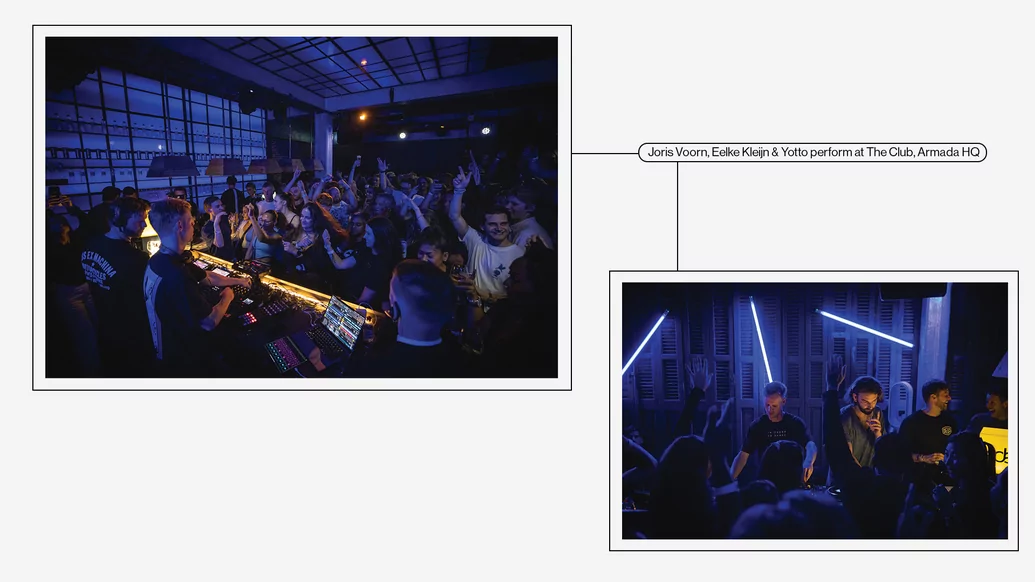
In these two decades, the label has navigated rampant growth, embraced industry innovation, and stayed ahead of the curve at an almost impossible rate. Such fast-changing environs have seen many labels, especially of the independent persuasion, fall by the wayside — so how are Armada still going so strong? “I think we’re a different company than a lot of our competitors because we believe and invest so much in artist development,” Armin attests. As both a supplier and a recipient of the label’s industry-leading artist support, his perspective is a unique one. “I’m really proud of the fact that we have a lot of long-term working relationships with artists — we don’t believe in just signing your biggest track and then saying ‘off you go’, we believe in real, personalised artist building. That’s when the magic really starts to happen.” It’s a sentiment echoed across Armada’s senior team, and that trickles down throughout its ecosystem.
A few tracks were instrumental to Armada’s early success. Armin cites Lost Frequencies’ seminal hit a decade or so ago, ‘Are You With Me’, along with Loud Luxury’s ‘Body’ from 2020. “There's a couple of those tracks that took things to that next level. You see, this is what I love about the music industry. It’s an exponential curve. Once a track starts selling, it just goes like that...” He gestures skywards with his hands. “...and it basically pays for the 1,000 releases that didn’t do that well.”
It’s not all been smooth sailing for Armada, though — as Piron is the first to attest. “When we started, the industry could not have been more different,” he muses. He’s referring, in part, to the rise of illegal downloading, which became a niggling thorn in the industry’s side throughout the early 2000s. Triggering slashed budgets, dwindling artist royalties, and job losses across the board, many independent labels simply lost hope in the financial viability of copyright. Sensing an opportunity, however, Piron swooped in and snatched up the rights to more than half of the dance classics ever signed in the Netherlands. “The industry was crumbling, and we had the chance to buy those catalogues very early on, which turned out to be so important for us,” he reflects.
Another more recent addition to the Armada empire is Madeleine van Schendel, the company’s Chief Growth Officer (CGO). Having previously served as a consultant for the label, as well as being responsible for implementing Web3 and NFT strategies for Armin van Buuren, she took on the permanent role to help navigate the label’s rapid growth in recent years. “Another reason why I came is because of this,” she grins, gesturing wildly around the bustling office space and towards Maykel. “This is a people-first company, and I think it’s because of that we can offer our artists the best possible ways to promote themselves; the best possible support to help them grow and to reach that next crucial phase.” Madeleine has also been a leading force in Armada’s newest venture, BEAT Music Fund (which stands for ‘Best Ever Acquired Tracks’).
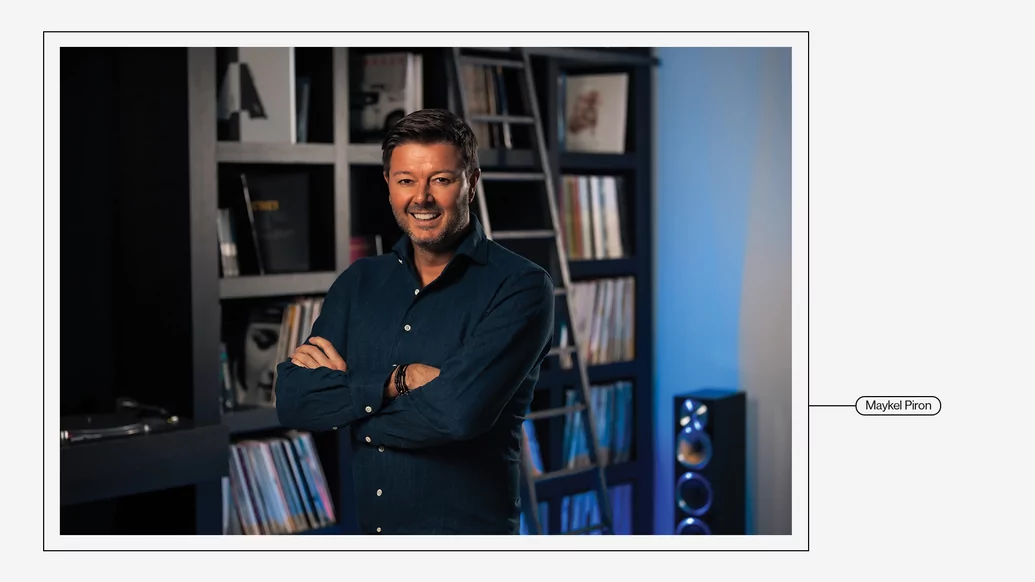
“You can’t rush these things, and you need to hire the right people. In America, we now constantly have between five and 10 records in the American Top 100 Dance Airplay charts, and we’re so proud of that.” – Maykel Piron, CEO and co-founder, Armada Music
Backed by US-based Pinnacle Financial Partners, the fund plans to invest $100 million in its first two years, with the mission of acquiring recording and music publishing catalogues for distribution. Some of its first acquisitions were the master recordings catalogue of Detroit techno legend Kevin Saunderson, and EDM don ARTY, who they have also signed for publishing (Armada has a significant publishing arm too). They also acquired the catalogue of NYC house label King Street Sounds, with others in the pipeline. Madeleine tells an amusing story of how, when they acquired the King Street catalogue, Maykel walked from his house in New York to the Armada office there carrying all 4,000 masters on his person that day. “They delivered the hard-disk to my apartment, and I just needed to get it to the office somehow,” Maykel smirks. “There was a lot of value on me that day.”
ADE is a milestone in the annual dance music calendar, and always tends to operate as a mark in the sand for Armada. “For me, ADE is always a great reflection of what we’ve done in the past year, because you speak to so many people, and you pick up some kind words about the company,” Maykel tells DJ Mag. “A lot of people are raving about the BEAT funds, and approaching us to check if we might be interested in their label or their catalogue. And that makes me so proud because they are really trusting us, and I’ve been looking up to those labels already since I was little.”
Expanding to other countries has been key to Armada’s development. Maykel started going to New York once a month in 2010, and eventually hired the first Armada employee in the Big Apple. “From there, we started growing, but very slowly — one person, then another,” he says. “But always Americans, I wanted to work with Americans. I didn’t want to send a bunch of Dutchies over to New York because it’s a different culture. So the only person over there with a Dutch accent was really me, and I knew that I had to lean into the culture for the label to grow.” He states that the growth is always slow but sure. “You can’t rush these things, and you need to hire the right people. In America, we now constantly have between five and 10 records in the American Top 100 Dance Airplay charts, and we’re so proud of that.”
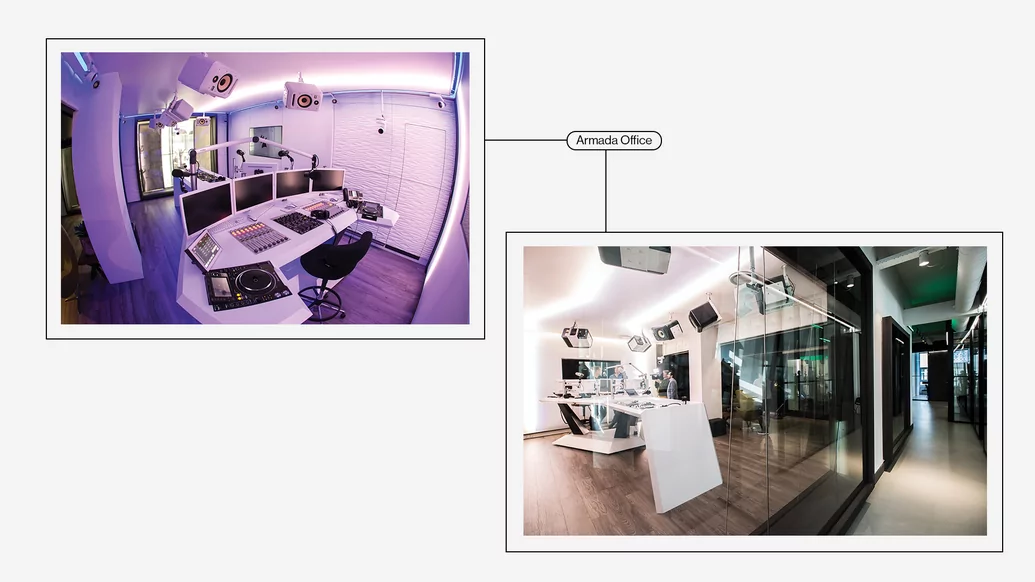
Continuing to employ the right people is key to their future progress, the whole Armada team agrees. “I don’t know anything about TikTok... so we’ve been bringing people on board who do,” says Armin. “One of my favourite moments of the week is travelling to the office every Tuesday to record A State Of Trance, and having lunch with the team and seeing all these young people with their fresh ideas. They are completely instrumental to what we do.”
“Honestly, sometimes I just don’t have a clue what I’m doing,” Armin continues, smiling. “I’m just trying my best... I’m not gonna say that all my music was genius. I’m not gonna say that all my radio shows and my mixes are genius. I’ve done alright, I've had a few hits but, you know, you have to look at it in a broader perspective.”
Armada can justifiably lay claim to being the biggest independent dance label in the world right now. A quick glance at its release schedule illustrates how diverse its genre span is — from Afro-house to techno, trance to chill, it covers virtually all electronic music sub-genres that you’re likely to find on Beatport. Armada Deep, Armind, A State Of Trance and Who’s Afraid Of 138?! are just a few of the imprints you’ll find Armada music emerging on.
Broadening its remit beyond the trance sound that van Buuren was chiefly known for has undeniably helped keep the label sounding fresh. “Trance was more or less the hot sound at the time,” Armin says, “it just helped that I loved it too. I always knew that Maykel’s heart was more with house though, so the potential to expand was always there. Maykel is a really, really good A&R and he really hears when the track is good. I mean, honestly, he’s signed tracks where he was screaming from the rooftops, ‘This is a hit!’ He’s rarely been wrong and that’s a talent you can’t really be taught.”
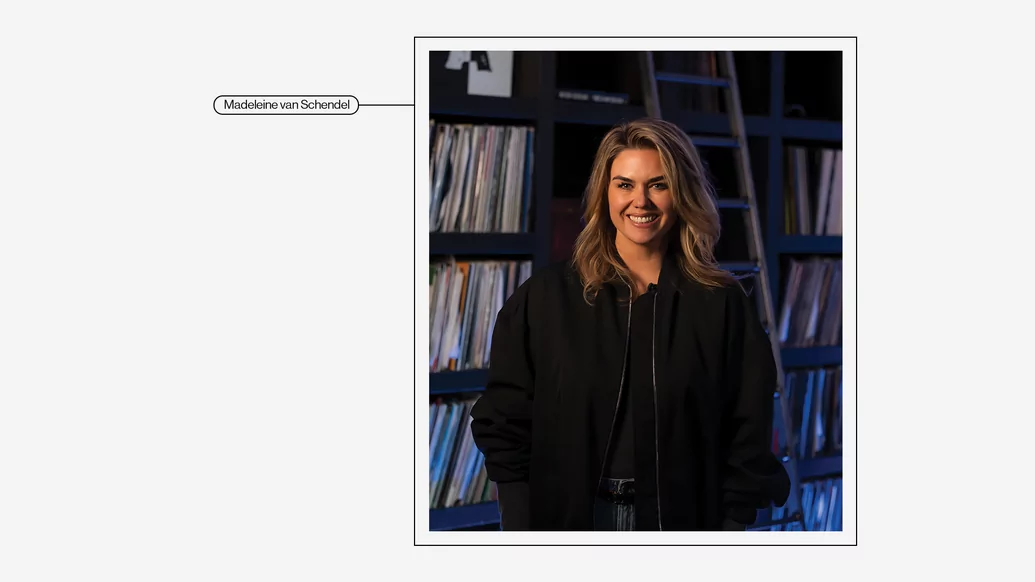
“It’s not about our egos,” Armin continues thoughtfully. “Of course we’re proud of what we’ve done, but the artists are number one, the music is number one. I’m proud of what we’ve grown Armada into, but I’m more proud of the music we released and the success we’ve had with individuals. We’ve created some classics, which is all you can really ask.”
Twenty years is a milestone for any label. To grow from nothing into the biggest independent label in the world is something to be incredibly proud of. “Probably the only downside of 20 years of Armada is it means that we’re getting older,” Armin laughs. He needn’t worry: the label is a force to be reckoned with, and established now on an incredibly sound footing. As we wave goodbye to ADE for another year, we’ll leave the last word on Armada to van Schendel: “You always want to sign timeless music,” she says. “Music that people will still be dancing to in 10 years.” We’ve no doubt Armada will continue to do just that.
Armada Music’s 20th anniversary vinyl compilation set is available to purchase here.

